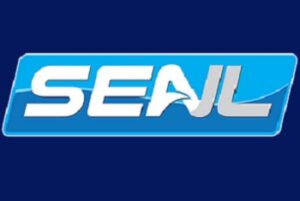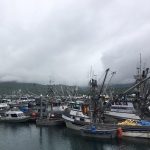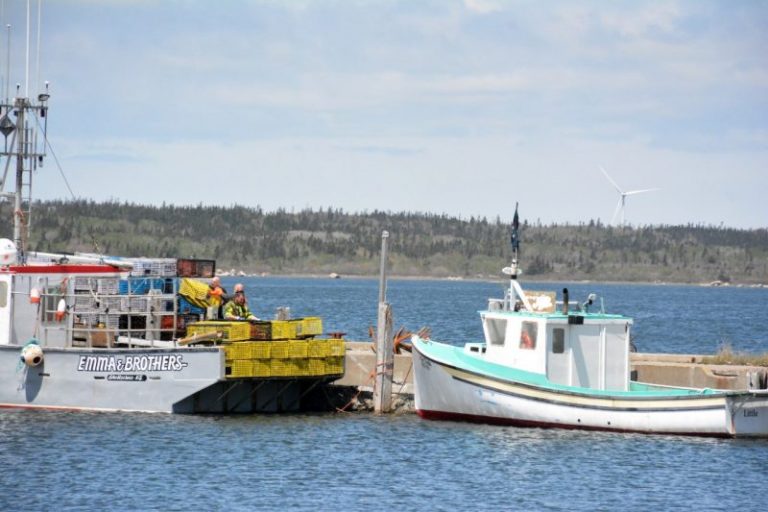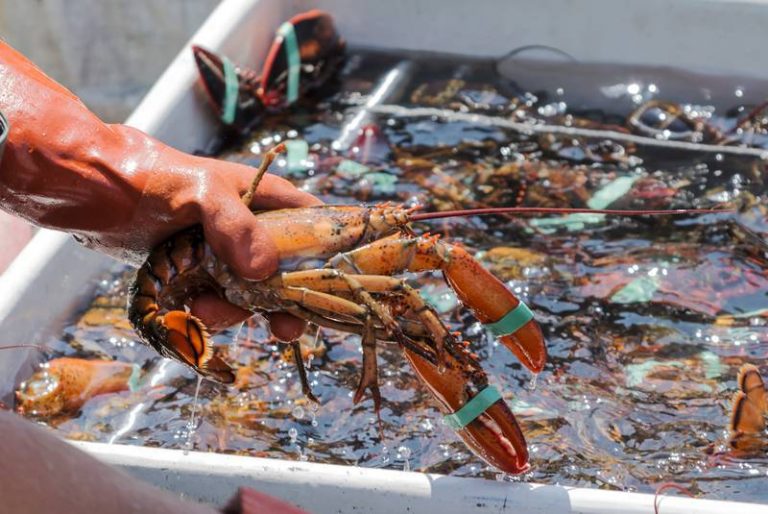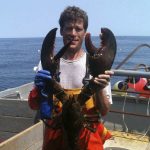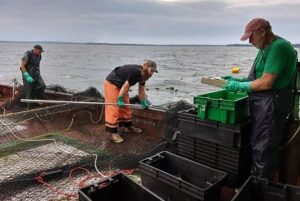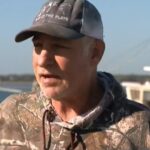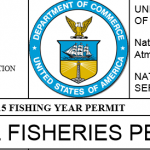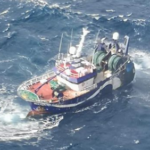Tag Archives: Fishery management
Prelude to war – A news analysis
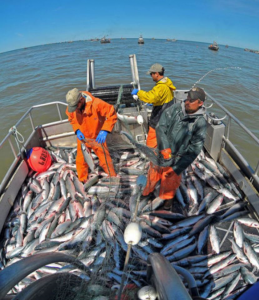 The mayor of Kenai, Alaska is “extremely disappointed” with the Alaska Board of Fisheries, and the mayor of the Matanuska-Susitna Borough less than pleased but “satisfied” with the Board’s big compromise. The big compromise itself? The Board will avoid both Wasilla and Kenai in favor of a 2020 meeting in Anchorage. So contentious has become the issue of Cook Inlet fishery management that politicians now argue over minutiae while the bigger issues plaguing the Inlet’s fisheries are ignored. click here to read the story 10:46
The mayor of Kenai, Alaska is “extremely disappointed” with the Alaska Board of Fisheries, and the mayor of the Matanuska-Susitna Borough less than pleased but “satisfied” with the Board’s big compromise. The big compromise itself? The Board will avoid both Wasilla and Kenai in favor of a 2020 meeting in Anchorage. So contentious has become the issue of Cook Inlet fishery management that politicians now argue over minutiae while the bigger issues plaguing the Inlet’s fisheries are ignored. click here to read the story 10:46
Fishery management goes back many decades
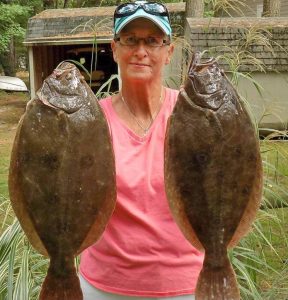 Beginning in the early 1970s, I became interested in fishery management. The declining number of striped bass or rockfish caught my attention, and I tried to help the situation the best way I knew how. I became a member of Save Our Stripers and then a part of Bob Pond’s effort to get the government to pay attention to his studies on the Nanticoke River that indicated there was something wrong with the eggs carried by female rockfish. Then there was a group of watermen in the Upper Chesapeake Bay that tried to establish a hatchery in Elkton. I went with them to collect males and females and then breed them in tanks before placing the tiny fry in ponds once used to grow catfish. Unfortunately, one pond still held a few catfish that were very happy to see all that food dropped in their laps. click here to read the story 16:43
Beginning in the early 1970s, I became interested in fishery management. The declining number of striped bass or rockfish caught my attention, and I tried to help the situation the best way I knew how. I became a member of Save Our Stripers and then a part of Bob Pond’s effort to get the government to pay attention to his studies on the Nanticoke River that indicated there was something wrong with the eggs carried by female rockfish. Then there was a group of watermen in the Upper Chesapeake Bay that tried to establish a hatchery in Elkton. I went with them to collect males and females and then breed them in tanks before placing the tiny fry in ponds once used to grow catfish. Unfortunately, one pond still held a few catfish that were very happy to see all that food dropped in their laps. click here to read the story 16:43
Dick Grachek: Maximum Sustainable Yield: Just More Management Delusion or a Bureaucratic Con?
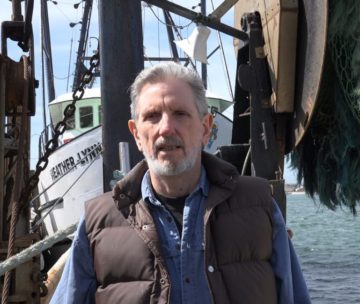 Even if getting out from under the management fantasy of the “extinction delusion” could somehow become a reality, an essential overhaul of the basic goals of fishery management is necessary and must begin by asking the obvious—but totally neglected—question, what exactly is all this management supposed to accomplish, anyway? Maximum Sustainable Yield: Stable and Sustainable Stocks, Right? Well…actually, managing the fisheries to MSY is all wrong. MSY accomplishes nothing more than stock population instability. One of the major mechanisms of this MSY approach is engineering the taking of large fish out of a population in some formulaic proportion to the young recruited into that particular stock. This is a naive and simplistic notion of stock dynamics. It completely ignores a myriad of natural or “biological-environmental” factors that govern fish survival and growth and population. Click here to read the story with a side note from Dick Grachek 17:04
Even if getting out from under the management fantasy of the “extinction delusion” could somehow become a reality, an essential overhaul of the basic goals of fishery management is necessary and must begin by asking the obvious—but totally neglected—question, what exactly is all this management supposed to accomplish, anyway? Maximum Sustainable Yield: Stable and Sustainable Stocks, Right? Well…actually, managing the fisheries to MSY is all wrong. MSY accomplishes nothing more than stock population instability. One of the major mechanisms of this MSY approach is engineering the taking of large fish out of a population in some formulaic proportion to the young recruited into that particular stock. This is a naive and simplistic notion of stock dynamics. It completely ignores a myriad of natural or “biological-environmental” factors that govern fish survival and growth and population. Click here to read the story with a side note from Dick Grachek 17:04
CATCH SHARES – NOT A VIABLE OPTION FOR THE NORTHEAST
 Theoretical constructs that might hold together logically and appear sound often quickly disintegrate in the atmosphere outside their esoteric bubble. This was certainly the case for catch shares or transferable quota management in the New England groundfishery. Catch shares in New England disintegrated almost upon entry. What are catch shares and where did they come from? Catch shares or the commoditization of the fish poundage to be caught, or the ownership of the “right” to harvest a certain portion of the government managers’ scientifically sanctioned total yearly catch, is a construct of “free market environmentalism” theory. The “enviropreneurs” or “enviro-capitalists” claim that ownership equals good stewardship, equals profitability. This privatization push is actually an idea of economics, claiming production “efficiency”, and not one of fishery conservation—although the sales pitch promotes this scheme as the answer to “overfishing”, and just in the nick of time. Click here to read the article 14:58
Theoretical constructs that might hold together logically and appear sound often quickly disintegrate in the atmosphere outside their esoteric bubble. This was certainly the case for catch shares or transferable quota management in the New England groundfishery. Catch shares in New England disintegrated almost upon entry. What are catch shares and where did they come from? Catch shares or the commoditization of the fish poundage to be caught, or the ownership of the “right” to harvest a certain portion of the government managers’ scientifically sanctioned total yearly catch, is a construct of “free market environmentalism” theory. The “enviropreneurs” or “enviro-capitalists” claim that ownership equals good stewardship, equals profitability. This privatization push is actually an idea of economics, claiming production “efficiency”, and not one of fishery conservation—although the sales pitch promotes this scheme as the answer to “overfishing”, and just in the nick of time. Click here to read the article 14:58
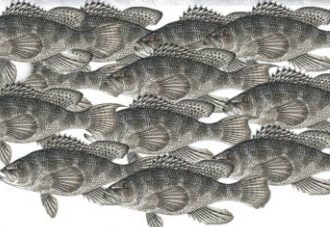
What’s so hard about managing fisheries?
Nils Stolpe/FishNet USA May 3, 2017 – “We live in a world in which data convey authority. But authority has a way of descending to certitude, and certitude begets hubris. From Robert McNamara to Lehman Brothers to Stronger Together, cautionary tales abound. We ought to know this by now, but we don’t. Instead, we respond to the inherent uncertainties of data by adding more data without revisiting our assumptions, creating an impression of certainty that can be lulling, misleading and often dangerous. Ask Clinton” Stephens, B., Climate of Complete Certainty, NY Times, 4/28/17. The above quote was from an op-ed piece by Bret Stephens, the New York Times’ recently acquired columnist. While he was targeting climate scientists, their “disciples” and the overblown pseudo-science hidden beneath an oversufficiency of less than convincing statistics that is used to strengthen their arguments, it appears that fisheries scientists are increasingly adopting the same techniques (the emphasis is mine) to support their often erroneous – sometimes sadly so – conclusions. Click here to read the article. 10:48
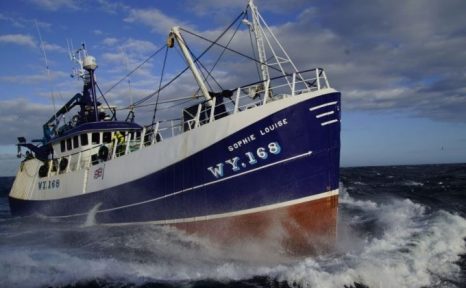
Are Days at Sea the Answer?
Recently, the argument that, after the UK has left the EU, effort control (days at sea limits) could replace quotas as the main management tool in the mixed demersal fisheries, has been finding some currency. It is not difficult to see the appeal. At a stroke, the discard problem would be solved, as vessels could land everything that they catch. The messy business of quota management, with its fixed quota allocations, swaps, leasing, top-slicing etc. could be dispensed with overnight. Instead, vessels would be given an annual allocation of days at sea. Full stop. In some versions of the theory, quota shares are converted into effort shares, which admittedly makes things more complex than a flat-rate number of days for every vessel in the fleet. But before we take the leap of ditching the messy quota system let’s have a look at the other side of the coin. There are a few reasons why effort might not be the road that we want to go down. Here are some of the counter-arguments: Read the article here 12:55
How sustainable seafood can harm coastal communities
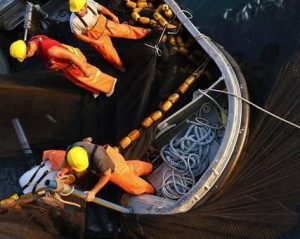 Kai Ryssdal: Tell me the story of how this book came to be. Lee van der Voo: Sure. Actually, I had just written a story about seafood and was in a bar with a bunch of writers loudly complaining about how I was never going to do it again. Somebody heard me and bet me, on the spot, one beer that they could get me to do it. And they started telling me about a new policy push to make seafood more sustainable in America and how it was starting to have some really significant downstream consequences for coastal communities and people who fish. Ryssdal: Long story short, you lost the beer. Van der Voo: Yeah, I lost that bet. It was worth it. Ryssdal: Do me favor and define a term for me, because it’s kind of at the root of this whole book, this idea of “catch share. Audio report, read the rest here 09:08
Kai Ryssdal: Tell me the story of how this book came to be. Lee van der Voo: Sure. Actually, I had just written a story about seafood and was in a bar with a bunch of writers loudly complaining about how I was never going to do it again. Somebody heard me and bet me, on the spot, one beer that they could get me to do it. And they started telling me about a new policy push to make seafood more sustainable in America and how it was starting to have some really significant downstream consequences for coastal communities and people who fish. Ryssdal: Long story short, you lost the beer. Van der Voo: Yeah, I lost that bet. It was worth it. Ryssdal: Do me favor and define a term for me, because it’s kind of at the root of this whole book, this idea of “catch share. Audio report, read the rest here 09:08
HOOKED UP! PART II: Gulf Council chief talks about IFQ’s
 The Gulf of Mexico Fishery Management Council manages the fishery resources in the federal waters of the Gulf of Mexico. It’s one of eight regional fishery management councils in the United States. The Gulf Council essentially manages the fishery from the nine-mile mark out to the 200-mile limit. “Before the IFQ, we tried a variety of ways to address the race for fish that was taking place,” says Dr. Roy Crabtree, regional administrator for the Gulf Council. “We had a limited commercial quota for red snapper. The fishermen were catching it up as quick as they could. They were flooding the market with fish Fishery was closed most of the year, so we didn’t have year-round production. And we had safety-at-sea issues. Because fishermen were fishing in unsafe sea conditions. And we were having overruns of quota. Crabtree says the IFQ program was designed largely to address these problems. The article continues here 18:00
The Gulf of Mexico Fishery Management Council manages the fishery resources in the federal waters of the Gulf of Mexico. It’s one of eight regional fishery management councils in the United States. The Gulf Council essentially manages the fishery from the nine-mile mark out to the 200-mile limit. “Before the IFQ, we tried a variety of ways to address the race for fish that was taking place,” says Dr. Roy Crabtree, regional administrator for the Gulf Council. “We had a limited commercial quota for red snapper. The fishermen were catching it up as quick as they could. They were flooding the market with fish Fishery was closed most of the year, so we didn’t have year-round production. And we had safety-at-sea issues. Because fishermen were fishing in unsafe sea conditions. And we were having overruns of quota. Crabtree says the IFQ program was designed largely to address these problems. The article continues here 18:00
Northeast Fisheries Science Center director steers a new course
It was last Halloween when Jon Hare took over as Science and Research Director for NOAA’s Northeast Fisheries Science Center in Woods Hole. He was aware he was jumping into a cauldron but it hasn’t spooked him yet. “I knew it was going to be a challenge and that’s why I was interested in it,” the career NOAA scientist said. Hare does understatement well. The director’s job description includes managing “the living marine resources of the Northeast Continental Shelf Ecosystem from the Gulf of Maine to Cape Hatteras,” according to the NOAA website. If that in itself were not sufficient, these resources include commercial fisheries, and in New England that is synonymous with controversy. Federal fishery management in general, and the efficacy of NOAA’s survey work on fish stocks in particular, have been heavily criticized by fishermen in the Northeast, almost without cessation for the past 15 years and the NEFSC has been at the sharp end of much of this disaffection. Read the story here 20:22
took over as Science and Research Director for NOAA’s Northeast Fisheries Science Center in Woods Hole. He was aware he was jumping into a cauldron but it hasn’t spooked him yet. “I knew it was going to be a challenge and that’s why I was interested in it,” the career NOAA scientist said. Hare does understatement well. The director’s job description includes managing “the living marine resources of the Northeast Continental Shelf Ecosystem from the Gulf of Maine to Cape Hatteras,” according to the NOAA website. If that in itself were not sufficient, these resources include commercial fisheries, and in New England that is synonymous with controversy. Federal fishery management in general, and the efficacy of NOAA’s survey work on fish stocks in particular, have been heavily criticized by fishermen in the Northeast, almost without cessation for the past 15 years and the NEFSC has been at the sharp end of much of this disaffection. Read the story here 20:22
Again we are treated to the absurdity that is “fishery management” in North Carolina
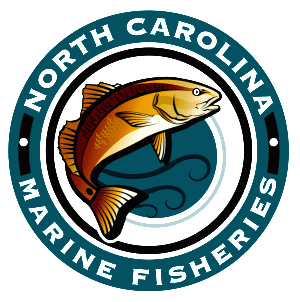 Sam Walker, writing for the outerbanksvoice.com, has what we think is an excellent article on the latest boondoggle from the NC Marine Fisheries Commissison. As with the Southern Flounder, they imposed restriction on cobia without any valid data and against the recommendation of the experts on their staff. Pure special interest politics and kabuki dancing with Federal bureaucrats. Click here to go to the original source to read the story. Commentary – Note that the article reports that the last “stock assessment” (that’s like a census) on cobia was made in 2012. Apparently, the justification for reducing the catch now is that “too many” had been caught recently. The Feds cut the take in Federal waters (three plus miles off shore) and pushed the states to do likewise. Our MFC capitulated but Virginia’s did not. Kudos to Rep. Walter B. Jones, Jr. for blowing the whistle on the Fed fish counters, demanding that a more scientific method of stock assessment must be found. Click here to read the letter Amen to that Walter! Note in the Outer Banks Voice’s article that the approach the NCMFC used was what is called euphemistically as “catch shares.” Think about this. Under the guise that certain species of fish are “overfished” they impose regulations on different kinds of fishermen according to what group you belong to…commercial fishermen, recreational fishermen and even in some instances imposing different regulations (amount that group can catch) on charter boats, while if you fish in the surf different rules apply. Read the rest here 10:34
Sam Walker, writing for the outerbanksvoice.com, has what we think is an excellent article on the latest boondoggle from the NC Marine Fisheries Commissison. As with the Southern Flounder, they imposed restriction on cobia without any valid data and against the recommendation of the experts on their staff. Pure special interest politics and kabuki dancing with Federal bureaucrats. Click here to go to the original source to read the story. Commentary – Note that the article reports that the last “stock assessment” (that’s like a census) on cobia was made in 2012. Apparently, the justification for reducing the catch now is that “too many” had been caught recently. The Feds cut the take in Federal waters (three plus miles off shore) and pushed the states to do likewise. Our MFC capitulated but Virginia’s did not. Kudos to Rep. Walter B. Jones, Jr. for blowing the whistle on the Fed fish counters, demanding that a more scientific method of stock assessment must be found. Click here to read the letter Amen to that Walter! Note in the Outer Banks Voice’s article that the approach the NCMFC used was what is called euphemistically as “catch shares.” Think about this. Under the guise that certain species of fish are “overfished” they impose regulations on different kinds of fishermen according to what group you belong to…commercial fishermen, recreational fishermen and even in some instances imposing different regulations (amount that group can catch) on charter boats, while if you fish in the surf different rules apply. Read the rest here 10:34
Sunday Read: Two Fishing Industry articles written by the late Jim O’Malley show how far we have not come.
Jim O’Malley, (whom has since passed away) member of the New England Fisheries Management Council and Executive Director of the East Coast Fisheries Federation, has been involved in fisheries issues at the national and international level from the pre-Magnuson era. In this presentation ( click here, Finding a Balance Between Economy and Ecosystem) he reflects on what is becoming a growing concern among industry members, responsible scientists and managers; the misuse of information to demonize the commercial fishing industry. – It was written in 1999. What has changed? Nothing! Read From Science to Illusion: Mathematics in Fishery Management written in 1998 (click here) 12:13
Nils Stolpe: While it’s called fishery management, it’s not even close – Managing fishing, not fish
“At the global scale, probably the one thing currently having the most impact (on the oceans) is overfishing and destructive fishing gear.” (former National Oceanic and Atmospheric Administration head Jane Lubchenco in an interview on the website Takepart.com on April 7, 2010.) The Deepwater Horizon oil spill catastrophe began on April 20, less than two weeks later. Each year in the U.S. hundreds of millions of tax dollars are spent on what is called fishery management. It’s called fisheries management in the Magnuson-Stevens Fishery Conservation and Management Act. Read the article here 19:14
Canadian Federation of Independent Fish Harvesters – ‘Real change’ needed in fishery management
 An advocacy group for fish harvesters across the country says the federal Liberal government needs to follow through on its election promises for people who fish for a living. Marc Allain, with the Canadian Federation of Independent Fish Harvesters, said that fishery management needs to be done by the people involved with the fishery. He added that it should be done on a regional basis and not by people in Ottawa with little knowledge of how the fishery operates. Read the article here 09:41
An advocacy group for fish harvesters across the country says the federal Liberal government needs to follow through on its election promises for people who fish for a living. Marc Allain, with the Canadian Federation of Independent Fish Harvesters, said that fishery management needs to be done by the people involved with the fishery. He added that it should be done on a regional basis and not by people in Ottawa with little knowledge of how the fishery operates. Read the article here 09:41
Our View: Fishery management needs balance
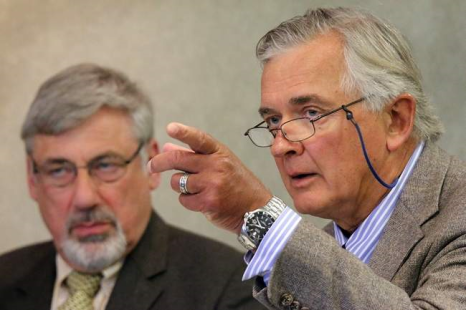 The requirement for consistency, above, might explain why Greater Atlantic Regional Administrator John Bullard told Rep. Ayotte that “eliminating overfishing” supersedes all other priorities. The Standard-Times is having a very difficult time trying to understand why a policy that will have such a clear negative impact on fishermen is being instituted when the beneficial impact on the resource — the fishery — is so unclear. Stock assessments are still determined by limited statistical sampling, which in addition to providing disputed results on stock health,,, Read the rest here 11:31
The requirement for consistency, above, might explain why Greater Atlantic Regional Administrator John Bullard told Rep. Ayotte that “eliminating overfishing” supersedes all other priorities. The Standard-Times is having a very difficult time trying to understand why a policy that will have such a clear negative impact on fishermen is being instituted when the beneficial impact on the resource — the fishery — is so unclear. Stock assessments are still determined by limited statistical sampling, which in addition to providing disputed results on stock health,,, Read the rest here 11:31
Rockfish poaching: It’s more than just a few fish
 It’s just fish. That, according to reporting by The Sun’s Catherine Rentz, is the attitude of many on Tilghman Island about the jail sentences handed down to some of those involved in a massive 2011 poaching operation. Everybody’s doing it, the local thinking goes, so what’s the big deal? Given the historic distrust many Maryland watermen have displayed toward government regulation of their livelihood — and in particular, given the insular nature of Tilghman Island — the willingness of so many to forgive and even laud those,,, Read the rest here 18:36
It’s just fish. That, according to reporting by The Sun’s Catherine Rentz, is the attitude of many on Tilghman Island about the jail sentences handed down to some of those involved in a massive 2011 poaching operation. Everybody’s doing it, the local thinking goes, so what’s the big deal? Given the historic distrust many Maryland watermen have displayed toward government regulation of their livelihood — and in particular, given the insular nature of Tilghman Island — the willingness of so many to forgive and even laud those,,, Read the rest here 18:36
The First Indicator – Looking Back. The 2nd indicator, looking forward.
 Let me say first off, no one ever accused me of being smart, not even me. I learned at an early age what a stupid son of a bitch was, and I learned it the hard way.,, “This is pretty dire,” said Russell Brown, deputy science and research director of the Northeast Fisheries Science Center, the branch of NOAA that did the research. Warning! Savory language ahead. Not to be read if offended easily! Read more here 09:06
Let me say first off, no one ever accused me of being smart, not even me. I learned at an early age what a stupid son of a bitch was, and I learned it the hard way.,, “This is pretty dire,” said Russell Brown, deputy science and research director of the Northeast Fisheries Science Center, the branch of NOAA that did the research. Warning! Savory language ahead. Not to be read if offended easily! Read more here 09:06
Time to rethink fishery management?
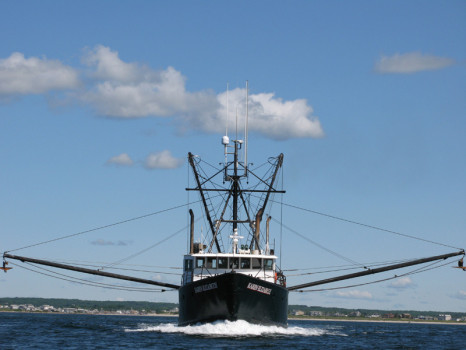 Fishery management traditionally has focused on fishing pressure, the removal of animals from a population with nets, lines and traps, as the only statistic worth using in the regulatory equation. The rationale is simple, at least in theory: If the landings in a fishery drop, it’s assumed that the population has declined. Read more here PBN.com 07:12
Fishery management traditionally has focused on fishing pressure, the removal of animals from a population with nets, lines and traps, as the only statistic worth using in the regulatory equation. The rationale is simple, at least in theory: If the landings in a fishery drop, it’s assumed that the population has declined. Read more here PBN.com 07:12
Suppose there was an important fishery that was the basis of a large part of the coastal economy as well as the cultural cement that held coastal communities together. – Towards rationality in fisheries management
![]() Adding their interpretation to this, the people at NOAA/NMFS, with the enthusiastic support of the various and sundry anti-fishing activists who pull way too many of the strings in Washington, have added as an administrative guideline that “the most important limitation on the specification of OY (optimum yield) is that the choice of OY and the conservation and management measures proposed to achieve it must prevent overfishing.” More here
Adding their interpretation to this, the people at NOAA/NMFS, with the enthusiastic support of the various and sundry anti-fishing activists who pull way too many of the strings in Washington, have added as an administrative guideline that “the most important limitation on the specification of OY (optimum yield) is that the choice of OY and the conservation and management measures proposed to achieve it must prevent overfishing.” More here
Climate Change Forces Reevaluation of Fishery Management
For decades, fishery management has focused almost exclusively on the need to restrict fishing. Now, environmental changes are forcing fishermen and regulators to reevaluate their traditional practices.![]()
Alaska Editorial: Fishery research a crucial investment
Gov. Sean Parnell visited the Kenai Peninsula this past week, and, as is almost inevitable in this neck of the woods, the discussion turned toward salmon fishery management. Right now, everyone’s got a theory about what’s happening to the chinook salmon — and theories encompass everything from excessive trawler by-catch to in-river overexploitation to Pacific Decadal Oscillation. continued at Juneau Empire
Why roll the dice on Alaska’s Kenai River kings by cutting escapement goals?
 The basic principle of fisheries management is simple. Fish come first. Use science to ensure adequate escapement and then allow harvest by users. When uncertain about the science, act conservatively to prevent overfishing. If precautionary measures must be taken, share the burden of conservation fairly among all users. continued
The basic principle of fisheries management is simple. Fish come first. Use science to ensure adequate escapement and then allow harvest by users. When uncertain about the science, act conservatively to prevent overfishing. If precautionary measures must be taken, share the burden of conservation fairly among all users. continued






 Catch-share programs have been promoted as a panacea to many fishery management challenges, but close scrutiny of these programs shows they create far more problems than they solve. Putting ownership of a wildlife resource into the hands of a private business for its own profit is a dramatic departure from the way this country has traditionally managed wildlife resources. U.S. Rep.
Catch-share programs have been promoted as a panacea to many fishery management challenges, but close scrutiny of these programs shows they create far more problems than they solve. Putting ownership of a wildlife resource into the hands of a private business for its own profit is a dramatic departure from the way this country has traditionally managed wildlife resources. U.S. Rep. 


























